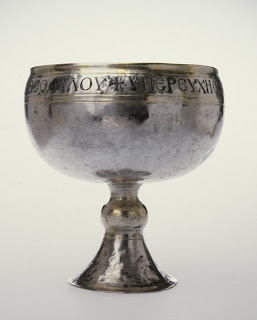For we discover love step by step in the course of our lives, and how to act in love. Certain privileged souls, it is true, awaken very early to a tender love for Jesus or the Father. But more generally, in order to understand charity, we have to fulfill the commandments; this is a basic attitude. We learn the love of God by obeying Him; we show our love for him, and he responds to it. This love grows; then more and more it governs our actions. What we did at first under constraint, afterwards, aided by a good habit and by the attraction of virtue, we do through love…. Now, love bears within itself the promise of eternity; it will never end; it will be consummated in the union with God, in blessedness.
- From “Good Works and Reward” in Serving God First: Insights on the Rule of St. Benedict by Dom Sighard Kleiner, p. 194
Sometimes we lose track of our underlying purpose as Christians. We become consumed with rules, systems, patterns, traditions, or goals rather than growing in the love and knowledge of God. This cannot be allowed to continue. It rots the very fabric of faith, gradually destroying our souls and turning the Gospel of Peace into either just another moral crusade or a hideous, distorted weapon with which to attack those who differ from us. The Holy Obedience of the Christian is an obedience to Christ, who is the perfect servant, completely one in will with the Father. Our obedience must be one based in love, as his obedience to the Father and his self-offering for us is one of love. Understood and practiced from this point of view, our loving obedience becomes the means of our freedom to become more and more like Christ.


.jpg)





